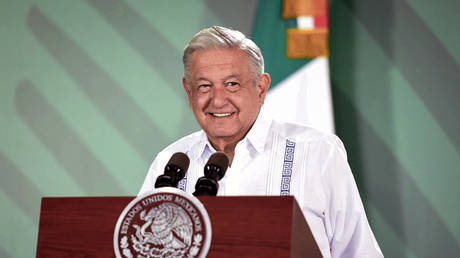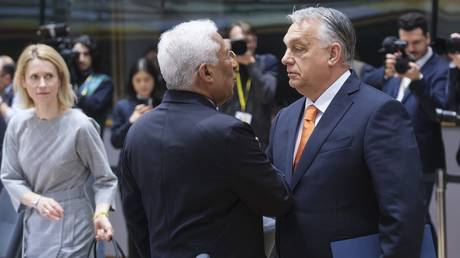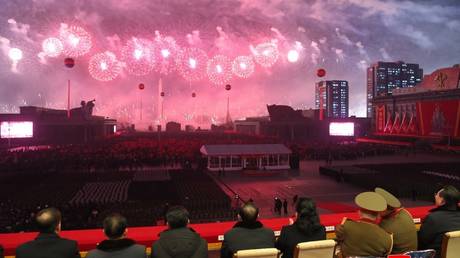
The president also called on Washington to end its decades-long trade embargo on Cuba
Mexican President Andres Manuel Lopez Obrador has urged the United States to end its economic penalties on Venezuela, part of a sweeping proposal to tackle Latin America’s migration crisis.
Speaking during a Friday press conference, Obrador described a multi-step plan to address the surge in immigration across the region, saying he had asked the US government to set aside $20 billion for the initiative and grant visas to some 10 million long-term Hispanic residents working in the United States.
He added that he also requested an end to economic sanctions targeting both Cuba and Venezuela during talks with senior US officials last month, instead calling for a “humane policy” with a “social dimension.”
Washington must “abandon the politics of 200 years ago, the hegemonic policy of impositions, of embargoes. That is from the Middle Ages, it has nothing to do with today’s world,” Obrador said.
The president has been highly critical of the penalties in the past, arguing they have only worsened the migration crisis. During a speech in October, he vowed to “keep insisting on addressing the root causes of migration, the origins, go deep, stop politicking, thinking rights are above ideology, that sanctions cannot be maintained – blockades – and that the poorest countries have to be helped.”
Washington has long maintained harsh sanctions on Cuba, instituting a full-scale trade embargo on the island in 1962, in the wake of the socialist overthrow of President Fulgencio Batista. Penalties against Venezuela are more recent, with former US President Donald Trump imposing sanctions on the country’s oil industry in 2017 and gradually stepping up the measures in the following years. President Joe Biden has continued many of the same policies, but relaxed some sanctions on Caracas after negotiations between the country’s ruling party and opposition.
READ MORE: BRICS represents ‘future of humanity’ – Venezuelan president
Obrador’s latest comments came days after Mexican law enforcement rescued 32 migrants who had been kidnapped as they attempted to reach the US, most of whom hailed from Venezuela and Honduras. The migrants were taken from a bus by armed men reportedly seeking ransom payments, which some families ultimately made, according to local officials.




